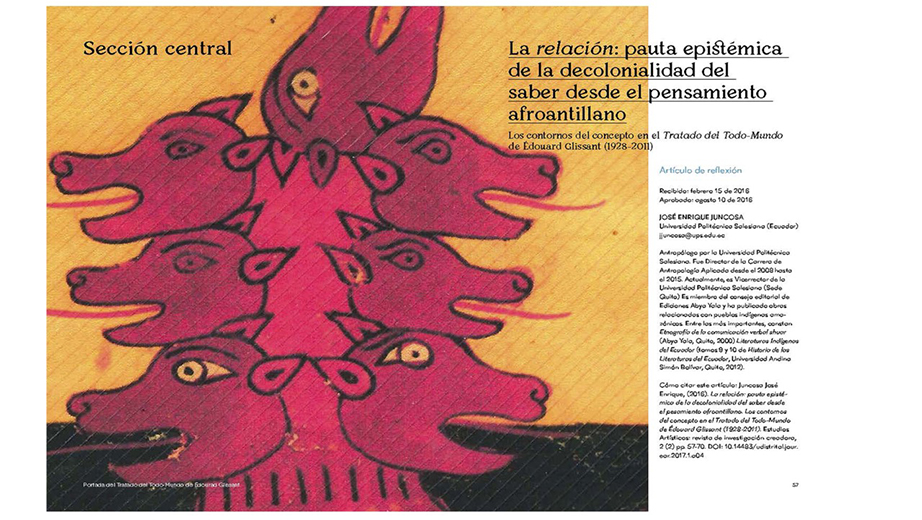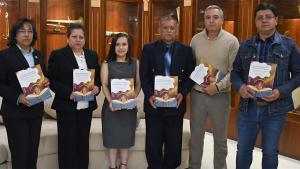The decoloniality of knowledge from Afro-Antillean thinking
The decoloniality of knowledge from Afro-Antillean thinking
The article "La relación: pauta epistémica de la decolonialidad del saber desde el pensamiento afroantillano" witten by Jose Juncosa Blasco, vice president of the university's branch in Quito, was published by the Estudios Artisticos Journal, a Research Journal. In the article, Juncosa describes the relationship identity as perceived by the Afro - Antillian poet Edouard Glissant (1928-2011) in his work Tratado del todo (Treaty of all)– a world from a predominantly aesthetic sensibility. The article seeks to be a contribution to the project of the decolonial turn of Latin American intercultural studies.
Jose Juncosa says that Glissant "speaks from the margins and suggests that poetry is also capable of providing imaginary people to the world, as well as textual resources and ways of thinking that allow to assemble a project: to reconstruct the subliminal identity of the Caribbean. In fact, one of its challenges is to think of Caribbean society and history from and with poetry, from and with art, assumed from a place of its own. Glissant's charm originates there: from his way of understanding the relationship that sets things to cause a way not only to understand the world, but also to feel it, to feel yourself in it, to express it and to mobilize it. "
The article discovers the the contours of the identity relationship and its way of operating in each of the following elements of reading suggested by the same Treaty: imagery, poetics and rhetoric, spirituality and ethics, politics and epistemic. The relationship conceived is a critique of walled identities, which self-propose as a single root to the point of dispensing with the other.
The proposal is to get the university's attention, since it has the risk of becoming a place of walled identity in which science tends not only to separate itself but also to deny other thoughts and epistemes. It also feeds a critical view of the social movements that involves a call to the connection and the encounter where the identity relationship is expressed in multiple ways.






Follow us
Follow us